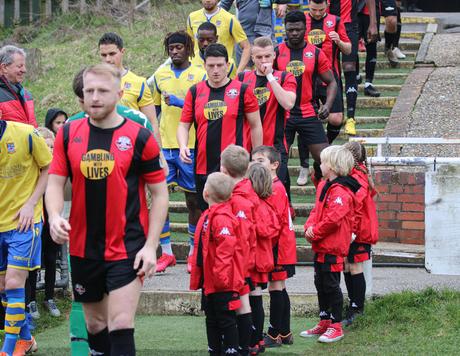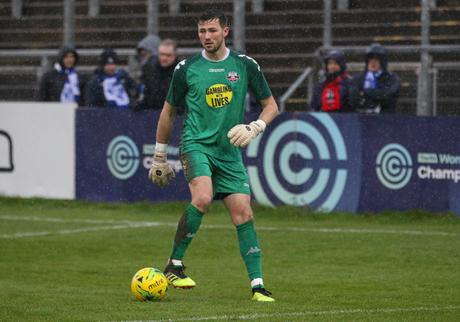The link between gambling advertising and football has never been as visible as it is today. Watch any game on TV and you cannot fail to see the gambling ads on the digital perimeter boards, the shirt sponsors and TV commercials. Every ad break in the BT Sport coverage of the Premier League on Wednesday 3rd February around the Aston Villa versus West Ham United game featured at least two betting company ads. There is simply no escaping them at the current time despite some loose promises that the industry was going to self-regulate itself.
The story doesn’t really change as you drop down the leagues. The three leagues below the Premier League are in a multi-year title sponsorship with Skybet, whilst over half of the 24 teams in the Championship sport a gambling company on the front of their shirts, with 32Red sponsoring three different clubs.
In Scotland, the leagues used to be sponsored by Ladbrokes until recently, whilst the two major domestic cups are still sponsored by betting companies through William Hill and Betfred. The Old Firm are both sponsored by gambling companies with Celtic sporting the SE Asian betting company Dafabet, whilst 32Red are on the front of the Rangers shirt.
It doesn’t matter where you look, the gambling ads are front and center. I have no beef with gambling or those who like a bet but there has to be questions asked about the amount of adverts, especially as gambling on football is outlawed for players, managers and most of those who are involved with a football club right down to the County Leagues in the UK which in itself presents a strange dynamic. Despite instances of relatively high profile cases of players being found guilty of betting offences, such as Daniel Sturridge, Joey Barton, Andros Townsend and Kieran Trippier.
The tide does appear to be turning with the growing call for gambling ads in football to be outlawed in a similar way to tobacco advertising was banned back in 2003. The Times led with a front page article last week on the subject, with further discussion due in the coming months.

However, for all of the noise about the potential restrictions impacting clubs incomes, it is worth noting that none of the world’s top ten most valuable football clubs, as measured in the annual Forbes survey, have a gambling company as their shirt sponsor. For reference, the list of shirt sponsors is as follows:
- Real Madrid – Fly Emirates (UAE-based airline)
- Barcelona – Rakuten (Japanese e-commerce platform)
- Manchester United – Chevrolet (US car company)
- Bayern Munich – Deutsche Telekom (Telecommunications)
- Manchester City – Etihad Airways (UAE-based airline)
- Chelsea – 3 (mobile network)
- Arsenal – Fly Emirates (UAE-based airline)
- Liverpool – Standard Chartered Bank (Global Financial Services company)
- Tottenham Hotspur – AIA (Global Insurance company)
- Juventus – Jeep (Automotive brand owned by Fiat)
In fact, only two clubs in the top twenty clubs have gambling sponsors on the front of their shirts – West Ham United with Betway (17th place) and Newcastle United with Fun88 (20th place). These clubs are driven by growing their global footprint, increasing their global fanbase and ultimately partnering with global brands. There is no doubt that these sponsors are at the top, or near the top of their respective industries and markets and so to be associated with global football clubs gives their own brand a huge boost. The point here is that the elimination of gambling sponsorship will have little effect on the biggest global clubs.
A number of European countries have already implemented much stricter regulation on gambling ads on TV, including Spain, Italy, Finland and France that has had a knock-on impact on domestic shirt sponsorship deals. For instance, in France’s Ligue 1, none of the twenty clubs carry gambling shirt sponsorship, although in Spain there is still a number of clubs who carry sponsorship from the likes of Betway and bwin. Some Premier League clubs who do sport Gambling companies on their shirts, such as West Ham, Wolves and Burnley, do at least sell an unsponsored version for under 18s, although based on the exposure the sponsored shirt gets it is rather a token effort.
In the current footballing landscape of significant pressures on clubs due to the lack of match day revenue from fans, you can understand how sponsorship deals have become more important to clubs. Likewise, with so many games now being shown live on TV, the number and frequency of ads has increased. But is there more long term benefit in clubs shunning gambling shirt sponsorship in favour of something a little more connected to the local community?
In League One for example, none of the current clubs have shirt sponsorship deals with gambling companies. But there are some deals that have a benefit for the club and a connection with the local community:
- Crewe Alexandra are sponsored by local breakfast cereal manufacturer and employer, Mornflake
- Charlton Athletic have Children With Cancer on their shirts
- Fleetwood Town are sponsored by local company BES Utilities
- Ginsters are proudly on the front of home city club, Plymouth Argyle
These may not be the most lucrative deals for the clubs but there is at least a community aspect which fans will value more than an extra few thousand pounds on a brand where there is no affinity or logical reason for the deal. A ban on gambling deals could see more of these types of deals happening in the future, which deliver long term benefits to the clubs, the community and the sponsor.

The next few months will see further debate on the subject, with strong views from both sides of the divide. The UK gambling industry is worth over £14 billion according to the Gambling Commission, with sport being a huge opportunity to market their brands and services but the growing concern on the impact of gambling in society may just see a similar blanket ban to that imposed on the Tobacco industry nearly twenty years ago. But it does seem that we are reaching a watershed moment in terms of shirt sponsorship where clubs are considering their role in wider society as well as revenue rather than waiting for a change in legislation.
Pictures of Lewes FC and their 2018-2020 charity sponsorship with anti-gambling charity Gambling with Lives thanks to James Boyes.

